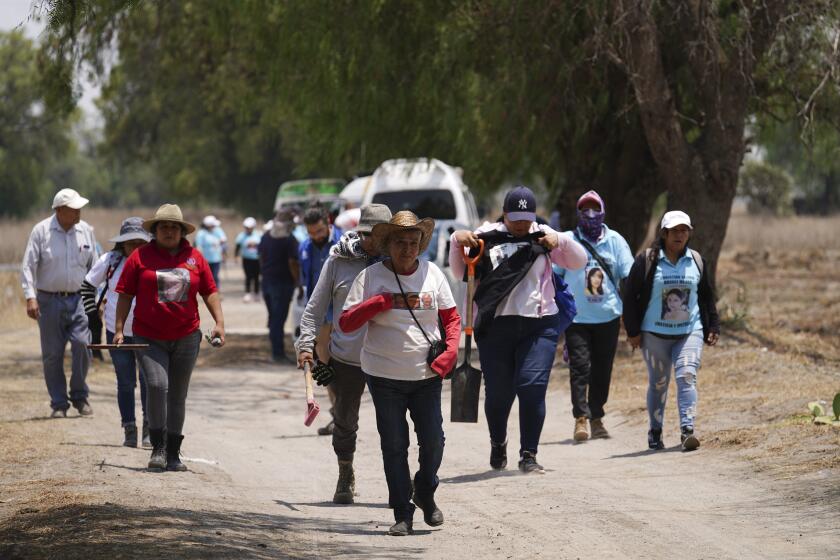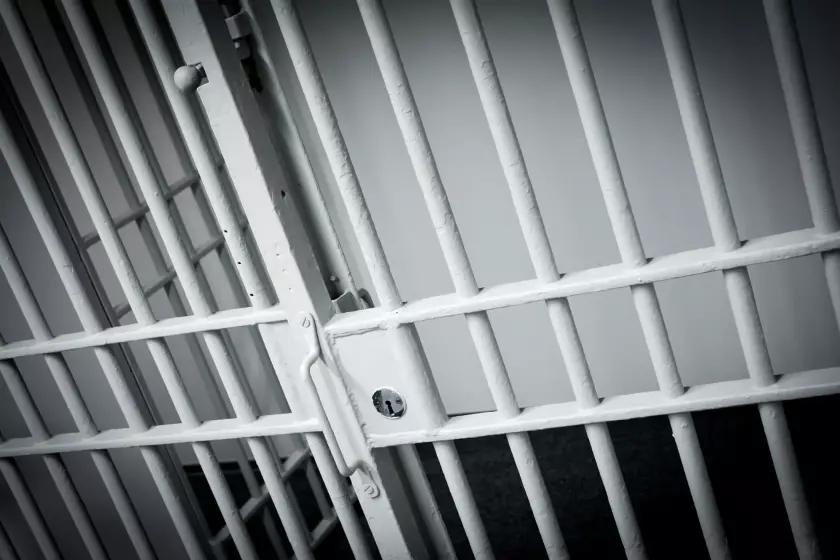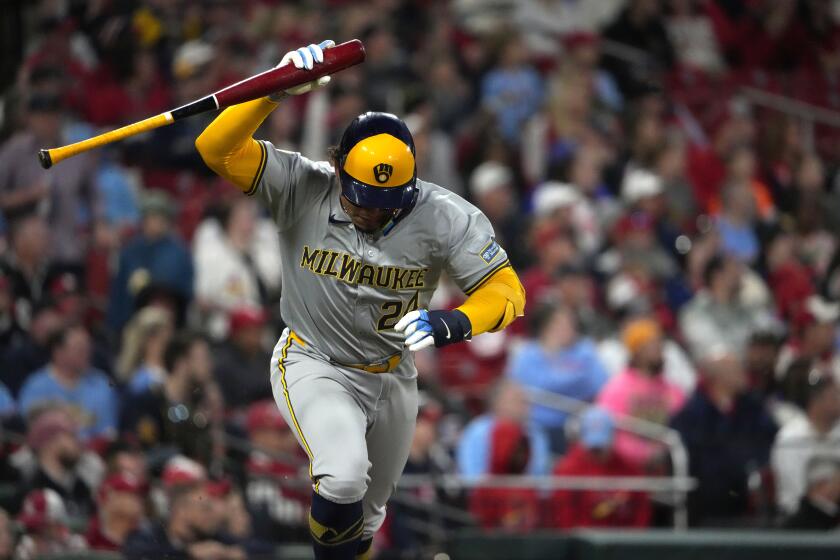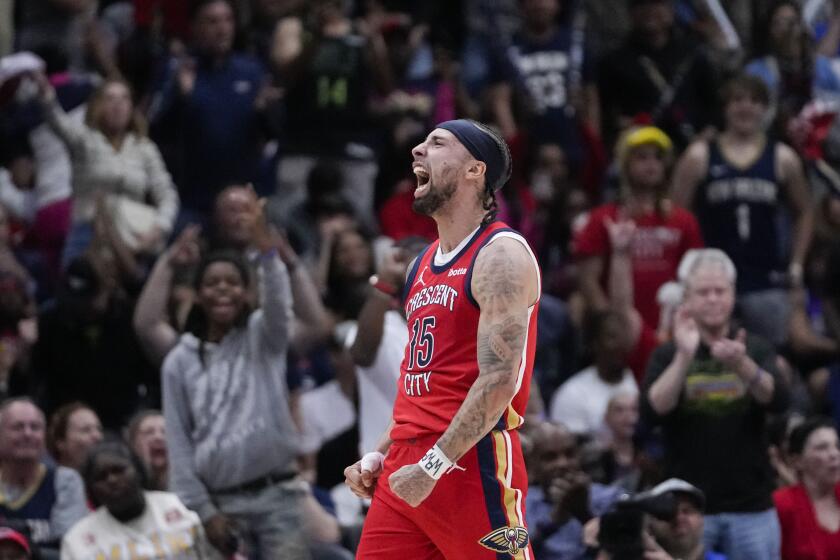Guaido returns to Venezuela, US and Spain warn against threats to him
Venezuelan opposition leader Juan Guaido returned to Caracas on Monday after a tour of several Latin American countries whose governments have recognized him as the oil-rich nation’s acting president.
“We are here,” he told journalists. “We remain in the streets, we remain mobilized.”
Diplomats from Spain, France, Germany, Portugal, Chile and Argentina, among other countries, were on hand at Simon Bolivar International Airport to receive Guaido.
Venezuela’s Supreme Court, which remains loyal to President Nicolas Maduro , had barred Guaido from leaving the country pending an investigation of his actions on Jan. 23, when the speaker of the opposition-controlled National Assembly proclaimed himself acting head of state.
Guaido left Venezuela on Feb. 22 and faced the possibility of being arrested on his return.
“We know the risks. Everyone knows the risks of doing politics in Venezuela,” Guaido said as he greeted the diplomats and a crowd of supporters chanting “Yes We Can.”
Guaido announced Sunday that his return to Venezuela was imminent and urged his supporters across the country to take to the streets to mark the occasion.
No prosecutors, judges or senior government officials commented publicly on Guaido’s plan to return.
On Feb. 25, Guaido participated in a meeting of the Lima Group in Bogota.
Founded in the Peruvian capital in August 2017, the Lima Group is comprised of Argentina, Brazil, Canada, Chile, Colombia, Costa Rica, Guatemala, Honduras, Mexico, Panama, Paraguay, Peru, Guyana and St. Lucia.
While in Colombia, Guaido led an operation that unsuccessfully attempted to deliver humanitarian aid from the border city of Cucuta into Venezuela, which is suffering from food and medicine shortages, and hyperinflation.
Maduro has rejected the aid, saying it is a Trojan horse and that he would be paving the way for a US-led military intervention if he did not use his army to block it from entering from Colombia and Brazil.
Guaido said after his return to Caracas that he would meet with union leaders on Tuesday and called on Venezuelans to take to the streets next Saturday for mass protests against the Maduro “dictatorship.”
The opposition leader said in an address to thousands of supporters in the capital that he planned to meet with public employee unions in an effort to try to stop the domination of the bureaucracy by pro-government forces.
“Tomorrow’s meeting with all the public employee unions is important, we can’t allow the bureaucracy to continue to be held hostage, to use our public employees who don’t make much ... the time has come to say enough, the time has come to put an end to this regime that oppresses us,” Guaido said.
The opposition leader said Saturday’s protests would give Venezuelans another opportunity to “mobilize in search of their liberty.”
Venezuela’s opposition does not recognize Maduro’s May 2018 re-election victory and his new six-year term in office that began on Jan. 10.
The United States is in the vanguard of the roughly 50 countries, including the major European powers, with the exception of Italy, that have recognized Guaido as Venezuela’s head of state.
Russia, China and India are among the dozens of nations that still regard Maduro as the legitimate president of the South American nation.
Meanwhile, in Madrid, Spain’s minister of foreign affairs on Monday highlighted the importance of Guaidó’s return to the crisis-stricken Latin American country on Monday and said he needed to be able to carry out his functions freely.
Speaking to the press, Josep Borrell warned the Venezuelan government and its President Nicolás Maduro of diplomatic consequences if “any kind of action (were) taken against the interim president of Venezuela.”
“We note the importance of Guaidó being able to freely carry out his functions as president of the Assembly and, in our case, recognized as the interim president,” Borrell said.
The Spanish cabinet minister thus reiterated a warning made by the European Union on Saturday against any kind of action on the part of the Venezuelan authorities that could endanger the freedom and safety of Guaidó, the leader of the National Assembly of Venezuela and the country’s main opposition leader.
“Any measure that could put at risk Juan Guaidó’s freedom, safety or personal integrity would represent a major escalation of tensions and meet the firm condemnation of the international community,” said a statement by the high representative on behalf of the European Union on Venezuela.
“The European Union underlines its conviction that the solution to the multidimensional crisis affecting Venezuela can only be a political, democratic and peaceful one,” the statement added.
And in Washington, Vice President Mike Pence said Monday that the US will not tolerate any threat, violence or intimidation directed at Guaido.
“@JGuaido’s safe return to Venezuela is of the highest importance to the U.S. Any threats, violence, or intimidation against him will not be tolerated & will be met with swift response. The world is watching - Interim President Guaido must be allowed to re-enter Venezuela safely,” said Pence on his Twitter account.



